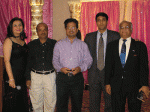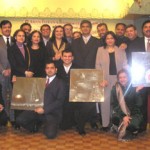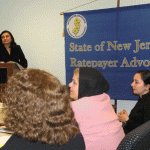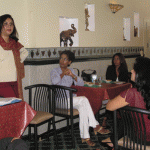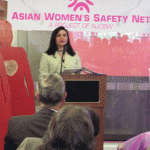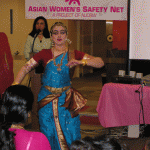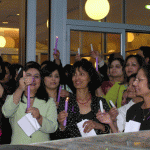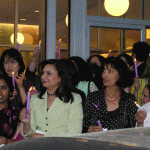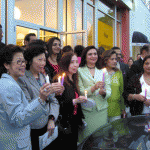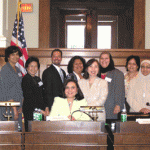Offshore tax evasion is not going to be a piece of cake anymore with the introduction and implementation of the Foreign Account Tax Compliance Act or FATCA. The new U.S. law creates an umbrella of scrutiny that immediately targets nations throughout the world to effect formal compliance.
Of course, there are always two sides to a story and the latest in tax policy is no different. The U.S. tax code has not made a revision in offshore tax haven accountability in more than 50 years but this is about to change with the implementation of FATCA. The “C” in FATCA stands for compliance. If you are compliant, you have nothing to fear. If not, brace yourself because it can get complicated. These are emerging changes signaling the beginning of a global tax evolution.
Commonsense Reform Was the Goal. President Obama’s initial FATCA premise was “commonsense reform to restore balance and fairness in our tax code” and to “crack down on illegal tax evasion, close loopholes and make it profitable for companies to create jobs in United States.” As the law has evolved for implementation, there have been Congressional additions and scope creep of the law. While the U.S. opened this conversation, understandably hungry for money after its 2008 fall from financial grace and the need to look for revenue, other countries suffering under global economy woes are also looking for their fair share of new revenue from any available sources, individual or corporate.
Global Players, Indian Shores. Global country players including England, Denmark, Norway, Switzerland, Mexico, Ireland, Germany and Spain have already signed compliance agreements, and many other country agreements (probably 80) are still pending. This outreach includes India and for Indian Nationals or Non-Resident Indians, including those who are citizens of the United States, an understanding of this new law may soon be critical.
Back in 2012, US Federal Reserve Chairman, Ben Bernake and US Treasury Secretary, Timothy Geither met with Prime Minister, Dr. Manmohan Singh in New Delhi, to open up examination of ways to prevent offshore tax evasion. As the date of FATCA compliance- January of 2014, rapidly approaches, the Securities and Exchange Board of India and the Reserve Bank of India are about to finalize FATCA, which means that Indian and all global banks, mutual funds, brokerage firms and depositories begin reporting accounts belonging to US citizens or with US addressees.
“After Singh Law held its first information session last month, it raised the profile on how important this law is becoming,” says Seema Singh, Managing Director of Singh Law LLC., based in Princeton, New Jersey. “Our goal is to assist individuals and small businesses as the law rolls out.”
Indian Income and Assets. U.S. residents who have Indian income and assets in India must know the following.
• Green Cards Must Declare. Green card holders who are staying in the United States or abroad and all other tax residents in the U.S. must declare global income in their Federal tax return and pay their tax.
• Institutions Must Report. Institutional financial investments in India must also be reported to the US Treasury by June 30th of each year if the maximum value of those investments exceeds $10,000 in U. S. dollars.
• Foreign Taxes are Deductible. It is important to realize however that taxes paid to India can be claimed against tax payable in the U.S. This means if you have paid tax in India, you can file paperwork, which will allow you to deduct that taxable income from your U.S. tax payments.
• $50,000 Plus Financial Assets Must Be Reported. Following the stringent rules of compliance, financial assets- even including personal loans- need to be reported with Form-1040 if those assets exceed $50,000 in U.S. dollars as demanded by FATCA.
New Law, New Challenges. Despite the debate about how much the U.S. will actually receive, estimates range from $8 billion to $210 billion over 10 years but the sum is not verified. The law has inspired controversy regarding privacy and excessive paperwork. Some Americans are even renouncing their citizenship, particularly those living abroad, because they are unwilling to deal with the “excessive paperwork and invasive rules.”
Andrew F. Quinlan, President of the Center for Freedom and Prosperity asserts a disturbing claim in his article:
With trillions invested in the U.S. from foreign sources each year, a loss of a mere fraction of this could spark another recession. It’s thus easy to see why the Joint Committee on Taxation estimated the law would raise a paltry $800 million per year, which is less than 1 percent of the $100 billion the law’s backers dubiously claim is lost to tax evasion each year.
Although many might wish the law would go away, NRIs and Indian Nationals are getting a new wake up call. The new reality is here. Hopefully, this blog series Indian Income on the Global Stage, may point you in the right direction, but, if you fall into these four categories, it would certainly be prudent to speak to your tax attorney or adviser in detail. Give yourself enough time to plan and take the action that is right for you. Compliance is only a few months away and the clock is ticking!
Seema Singh is a practicing attorney and Managing Director, Singh Law LLC, with offices in Princeton, New Jersey and New York City. Her firm has more than 16 law practice areas including Business Law and Corporate Law. Seema speaks on business law issues like FATCA. For more information, contact www.SSinghLaw.com







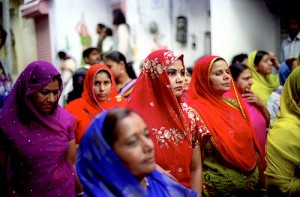
 Seema Singh, dubbed the “Accidental Advocate,” has a success formula that is no accident. Seema blazes new paths. From ages 8 to 80, Seema engages with a mission and a message that moves an audience. A veteran speaker of more than 500+ venues, Seema constantly renews her audience relevance by staying connected. Her words of wisdom, information, and motivation have been heard by diverse groups from ages 8 to 80.
Seema Singh, dubbed the “Accidental Advocate,” has a success formula that is no accident. Seema blazes new paths. From ages 8 to 80, Seema engages with a mission and a message that moves an audience. A veteran speaker of more than 500+ venues, Seema constantly renews her audience relevance by staying connected. Her words of wisdom, information, and motivation have been heard by diverse groups from ages 8 to 80.